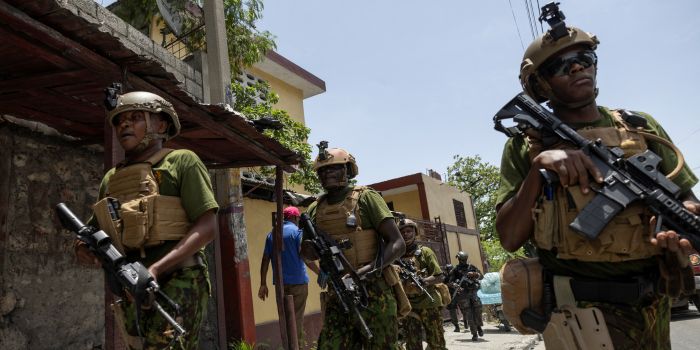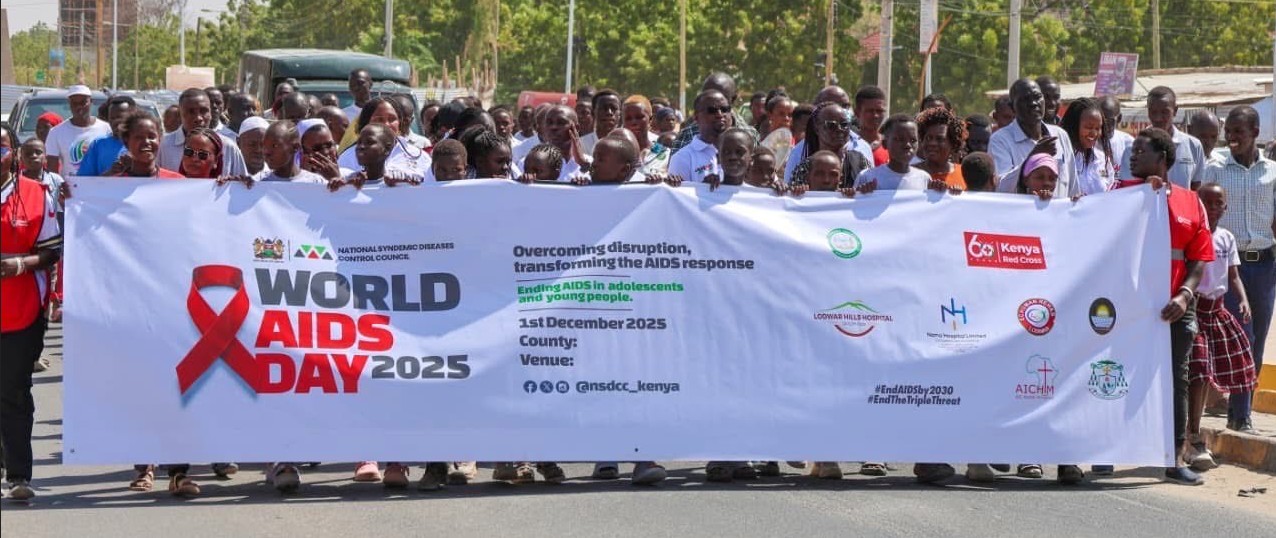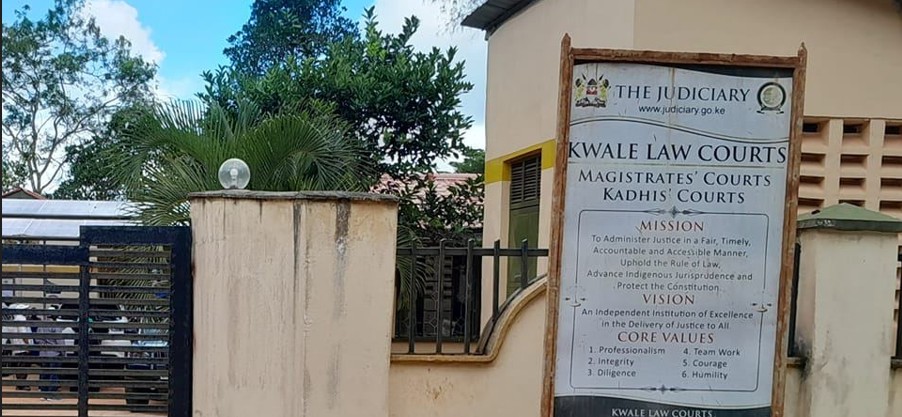Haitian and Kenyan police struggle with insecurity, CARICOM report finds

The statement follows the group's last week's visit to Port au Prince which included a tour of the Multinational Security Support Mission (MSSM).
On Tuesday, the Caribbean Community (CARICOM)'s Eminent Persons Group confirmed that the Haitian and Kenyan police are struggling with insecurity. They noted that the Kenyan force is understaffed and under-equipped, lacking the capacity to hold reclaimed territory.
A statement released on Tuesday night said that the struggle, coupled with the erosion of public confidence in the Transitional Presidential Council (TPC), could lead to the transition process not meeting its February 2026 deadline for the seating of an elected president.
More To Read
- Haiti security forces say era of unchecked gang power is over as crackdown intensifies
- Haiti, Panama and Curaçao seal historic World Cup spots
- ‘Kenya can’t do it alone’: US urges more nations to join Haiti’s Gang Suppression Force
- Millions of lives at risk, warn UN food agencies, as hunger crisis worsens
- At least 20 dead as Hurricane Melissa hits Haiti
- Green light for Gang Suppression Force tells Haitians ‘they are not alone’, Security Council hears
The statement follows the group's last week's visit to Port au Prince which included a tour of the Multinational Security Support Mission (MSSM).
It noted that a major concern articulated by both CARICOM and TPC was the difficulties experienced by the Haitian police and the Kenyan force in addressing insecurity which remains the foremost expectation of the Haitian people.
"The common concern articulated was that the Kenyan force was both under-staffed and under-equipped and as a result lacked the capacity to hold reclaimed territory. The need for the provision of adequate funding for the MSSM for an early resolution of these equipment and personnel shortfalls was emphasised," the statement reads in part.
The group was in Haiti on invitation by the President of the Transitional Presidential Council (TPC) between August 11 and August 16, 2024 to ascertain and evaluate the progress accomplished in the transition process to be in a position to report to the Heads of Government of the Caribbean Community.
During the visit, the group held meetings with the bicephal executive; the Director-General of the Haitian National Police; the Minister responsible for women's affairs, the nominating sector leaders; the leadership of political parties not represented on the TPC nor in the government; the civil society sector including women's and human rights associations; the religious and private sectors; labour unions; and a visiting diaspora group.
It also met with the representatives of Haiti's major international partners (Canada, France, the USA) as well as the representatives of the United Nations Office in Haiti (BINUH), the Organisation of American States (OAS), and MSSM Force Commander Senior Assistant Inspector General Godfrey Otunge who also decried of a lack of equipment and delays by other countries to join the mission whose pre-deployment phase ends next month.
The group noted there were delays in the setting up of key institutions to guide the transition process, a challenge that the Prime Minister emphasised that, unless the issue of insecurity is resolved, progress in other critical theatres of government action would very likely be compromised.
This is even as meetings between civil society groups and political parties not party to TPC argued that a reset and reconfiguration of the TPC was needed.
"There was unanimity about the concerns and issues raised – the inability of the State to improve security; disappointment over the lack of impact of the presence of the Kenyan forces; the erosion of public confidence in the TPC, exacerbated by the corruption scandal and strident demands for the three Councillors to be withdrawn; increasing concern that because of delays, perceived as inaction, the transition process would not meet its deadline of February 2026 for the seating of an elected president," the statement added.
The three are reported to have met with the director of one of the country's state-owned commercial banks and allegedly asked him to pay 100 million Haitian gourdes, about $758,000 if he wanted to keep his job.
The group noted that there was a need for greater effectiveness in attaining the major objectives in the allotted time, adding that the corrosive impact of the allegations of a bank bribery scandal involving the three members of the TPC has contributed to the fragility of the transition process.
"The corruption allegations could not have come at a worse time, and will require speedy resolution in order to preserve the integrity of the institution and public confidence in the transition process. In this regard, the enquiry of the anti-corruption investigative agency will be of critical importance. There needs to be a return to the ethos of the agreement in Jamaica of March 11, 2024, which was built on inclusiveness, consensus and accountability," the statement added.
Other Topics To Read
Top Stories Today












































